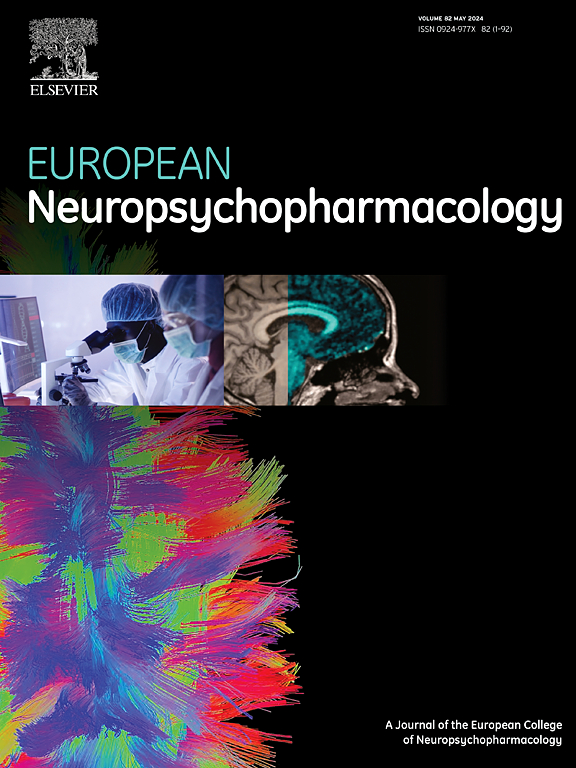引人入胜的见解:围绕精神病遗传学,与精神疾病患者及其家人建立联系
IF 6.1
2区 医学
Q1 CLINICAL NEUROLOGY
引用次数: 0
摘要
作为一个从小就被诊断患有精神分裂症等疾病的人,在我们对遗传学的看法还比较简单和决定论盛行的时代,"在多元化的世界中传播精神遗传学 "是我的首要任务。和许多被诊断出患有精神疾病的人一样,我在寻找答案的过程中发现了更多的问题。我与精神科遗传学领域的专业人士进行的交流,对我和他们来说都是富有成效的,也为我们提供了很多信息。这样的经历鼓励我尝试让更多与我有相同诊断的人参与到这些讨论中来。本演讲将从我与精神疾病患者及其家人的工作中汲取经验,探索他们从最初的犹豫不决到有意义地参与精神疾病遗传学研究的过程。我将讨论我们如何将临床知识与现实世界的对话联系起来,揭示知情讨论的变革力量。根据十年的经验,我将从最初的常见反应开始--要么认为精神科遗传学过于复杂,要么质疑其相关性。我将与大家分享我们是如何驾驭这些看法,以促进真正的兴趣和理解的。此外,我还将分享有助于揭开复杂遗传学概念神秘面纱的策略和能引起共鸣的解释,以及如何简化我们的方法,使遗传科学变得通俗易懂、贴近生活。我将重点介绍讨论中出现的最有效的问题和话题,如遗传风险因素及其对治疗选择和生活方式决定的影响。我们的出发点是,许多人认为精神科遗传学过于复杂,难以掌握,或者根本不相关。总之,本演讲将展示我们是如何从最初的怀疑转变为更深入、更明智的理解,从而赋予精神疾病患者更多的权利,而不是让他们感到困惑。我希望这次演讲能够鼓励并给予专业人士信心,使他们能够驾驭复杂的问题,并与那些受益最大的人分享他们的知识。本文章由计算机程序翻译,如有差异,请以英文原文为准。
ENGAGING INSIGHTS: CONNECTING WITH PEOPLE WITH PSYCHIATRIC DIAGNOSES AND THEIR FAMILIES AROUND PSYCHIATRIC GENETICS
As someone who grew up living with a diagnosis of schizophrenia - among others - at a time when our view of genetics was much simpler and deterministic, the work of “communicating about psychiatric genetics in a diverse world" is a priority for me. Like many living with a diagnosis, my search of answers actually uncovered more questions. My conversations with skilled professionals in the world of psychiatric genetics have been productive and informative for both me and them. Such an experience encouraged me to try and engage more people who share my diagnoses to participate in these discussions.
This presentation will draw on my work with people with psychiatric diagnoses and their families, exploring the journey from initial hesitation to meaningful engagement in psychiatric genetics. I will discuss how we can bridge clinical knowledge with real-world dialogues, revealing the transformative power of informed discussions.
Drawing on ten years of experience, I will begin with the common initial reactions—either a belief that psychiatric genetics was too complex or a question of its relevance. I will share how we navigated these perceptions to foster a genuine interest and understanding. In addition, I will share the strategies that helped demystify complex genetic concepts and the explanations that resonated, as well as how simplifying our approach made genetic science accessible and relevant. I will highlight the most effective questions and topics that emerged during our discussions, such as genetic risk factors and their implications for treatment choices and lifestyle decisions. The presentation will emphasise the mutual benefits gained from these interactions, underscoring a shared journey of discovery that enriched both the participants' and the professionals' understanding.
We started from a place where many felt that psychiatric genetics was either too complex to grasp or simply irrelevant. Overall, this presentation will demonstrate how we moved from those initial doubts to a deeper, more informed understanding that empowers - rather than confounds - people with psychiatric diagnoses. I hope this presentation will encourage and give confidence to enable skilled professionals to navigate complex issues and share their knowledge with those who stand to benefit most.
求助全文
通过发布文献求助,成功后即可免费获取论文全文。
去求助
来源期刊

European Neuropsychopharmacology
医学-精神病学
CiteScore
10.30
自引率
5.40%
发文量
730
审稿时长
41 days
期刊介绍:
European Neuropsychopharmacology is the official publication of the European College of Neuropsychopharmacology (ECNP). In accordance with the mission of the College, the journal focuses on clinical and basic science contributions that advance our understanding of brain function and human behaviour and enable translation into improved treatments and enhanced public health impact in psychiatry. Recent years have been characterized by exciting advances in basic knowledge and available experimental techniques in neuroscience and genomics. However, clinical translation of these findings has not been as rapid. The journal aims to narrow this gap by promoting findings that are expected to have a major impact on both our understanding of the biological bases of mental disorders and the development and improvement of treatments, ideally paving the way for prevention and recovery.
 求助内容:
求助内容: 应助结果提醒方式:
应助结果提醒方式:


